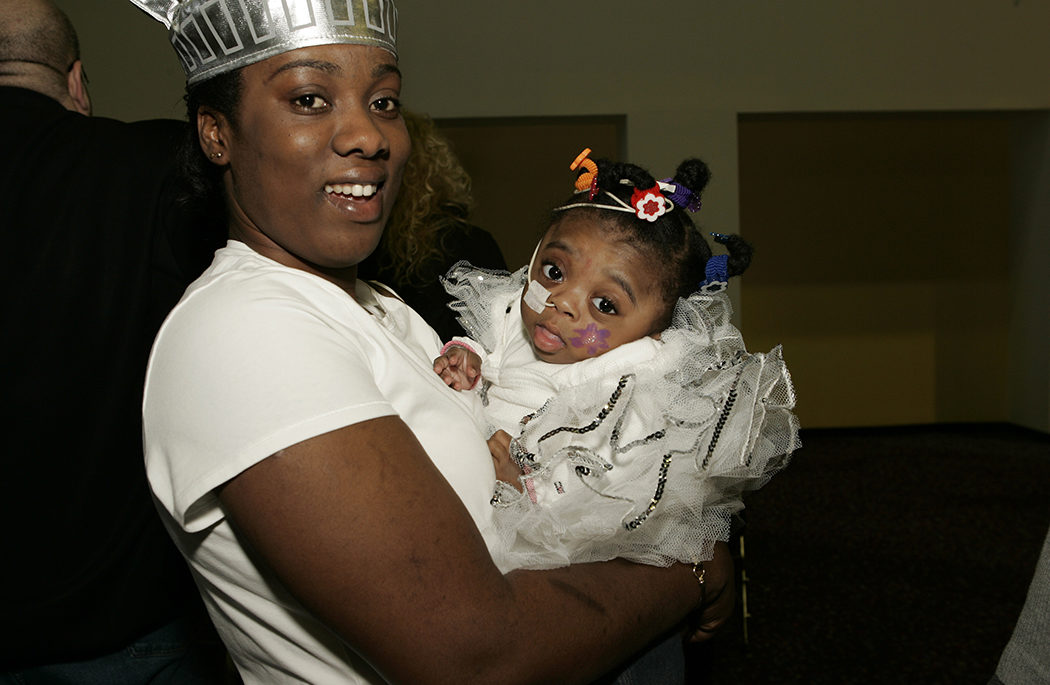Partners In Parenting (PIP)
After Care that helps families stay together and children with special medical needs thrive
Partners In Parenting (PIP)

What is Partners In Parenting (PIP)?
Understanding and support can make all the difference for parents caring for children with significant health issues. When a crisis arises, it is helpful to have someone to call who can point a family in the right direction, answer questions and meet needs. Aftercare Prevention programs are a vital resource to help families deter a crisis, maintain stability, and improve the overall health and well being of the family.
NAC’s Partners in Parenting (PIP) is a home and community-based Aftercare Program that provides comprehensive services to families that have a child, aged birth-21, with a chronic or complex medical condition, developmental disability or behavioral health issues.
PIP operates on a clinical, case management model. Each family is assigned a Social Worker who performs a comprehensive assessment of the family’s needs. The PIP Social Worker then collaborates with the parent to develop goals and objectives for an initial service plan for each individual family member. The PIP Social Worker is considered the heart of the program and the driving force behind the families’ progress.
The goals of the PIP programs are to ensure that families receive appropriate services to meet their children’s educational, physical, social/emotional development, and mental health needs. Services are strength-based, culturally competent and committed to family preservation and resilience.
What Services Do We Offer?
Our model is to provide interdisciplinary, comprehensive services that meet the specific needs of the entire family and a continuum of care for as long as the family needs support. Families not only have access to master’s level Social Workers, but a team of educators, medical providers, mental health clinicians, psychologists, psychiatrists, and youth development specialists
Program services include:
- Comprehensive family and individual needs assessment to determine appropriate services.
- Individual, family, group counseling, and crisis intervention.
- Case coordination with medical facilities, community-based organizations, mental health clinics, early intervention services, and schools.
- Education advocacy and placement of children in appropriate educational settings.
- Information, referral and/or advocacy services.
- Access to resources, entitlements, and homelessness prevention services.
- Therapeutic youth development, mentoring and recreational programs.
- Parent support groups
In order to ensure families have knowledge of and access to the most appropriate community-based services, PIP staff conducts continuous outreach to providers across a range of specialties throughout New York City. These may include primary, specialty, and subspecialty medical care; community-based mental health services, occupational, educational and vocational services; substance abuse treatment programs, HRA and homelessness prevention services. We have also developed liaison relationships with many major hospitals and public and private agencies and organizations that focus on children with medical, developmental and physical disabilities.
Who is eligible for PIP?
PIP services are for families who have been in a Preventive Services program (prevents placement in foster care) or have had children placed in foster care. Families who have had no prior involvement in the child welfare system are also eligible.
To qualify for NAC’s services, families must also:
- live in one of the five boroughs of New York City
- have a child 21 years or younger in their care
- have a child with a developmental disability, medical and/or mental health diagnosis
Families are eligible for support regardless of their insurance or immigration status.
Referrals are accepted from:
- Prevention programs
- Hospitals, doctors and community-based programs
- Self-referrals
The Difference PIP Makes
- Families are strengthened, resilient and achieve stability after benefiting from a range of solution-focused and culturally responsive interventions.
- Parents demonstrate improvement in understanding and meeting their child’s social, medical, educational needs, and well-being;
- Parents are supported in accessing educational, training and employment opportunities;
- Children with chronic medical conditions, developmental disabilities, and behavioral health issues are successfully maintained within their homes and experience stability from access to medical care coordination, specialized educational services and linkages to other community services;
- Typically developing youth achieve educational success, graduate from high school, receive college-bound supports and/or are helped to transition into the workforce.
Additional Supports Available
Comprehensive care is at the heart of everything we do. Families enrolled in PIP are also eligible for the following care and services:
- Champions for Children’s Health – Children’s Healthcare Management Program
- Children and Family Treatment and Support Services (CFTSS)
- Family Mental Health Clinic
- Medical Clinic
- Peter Haje Center for Autism
- Educational Advocacy & Tutoring
- College Bound Program
- Youth Development & Mentoring Programs
- Recreational Services
- Food Bank
- Safe Haven LGBTQI+ Support
- College Bound Program
- Family Wellness
- Vivian & Roger Farah Comprehensive Healthcare Center
The Difference That Counts
250 children served annually
100 of children in PIP avoided entering or returning to the child welfare system
50 % of PIP parents are working or in a vocational program
We believe every NAC kid can reach their potential.
From tutoring to mentoring to college bound, find out how NAC supports youth’s dreams and academic achievements
Learn More